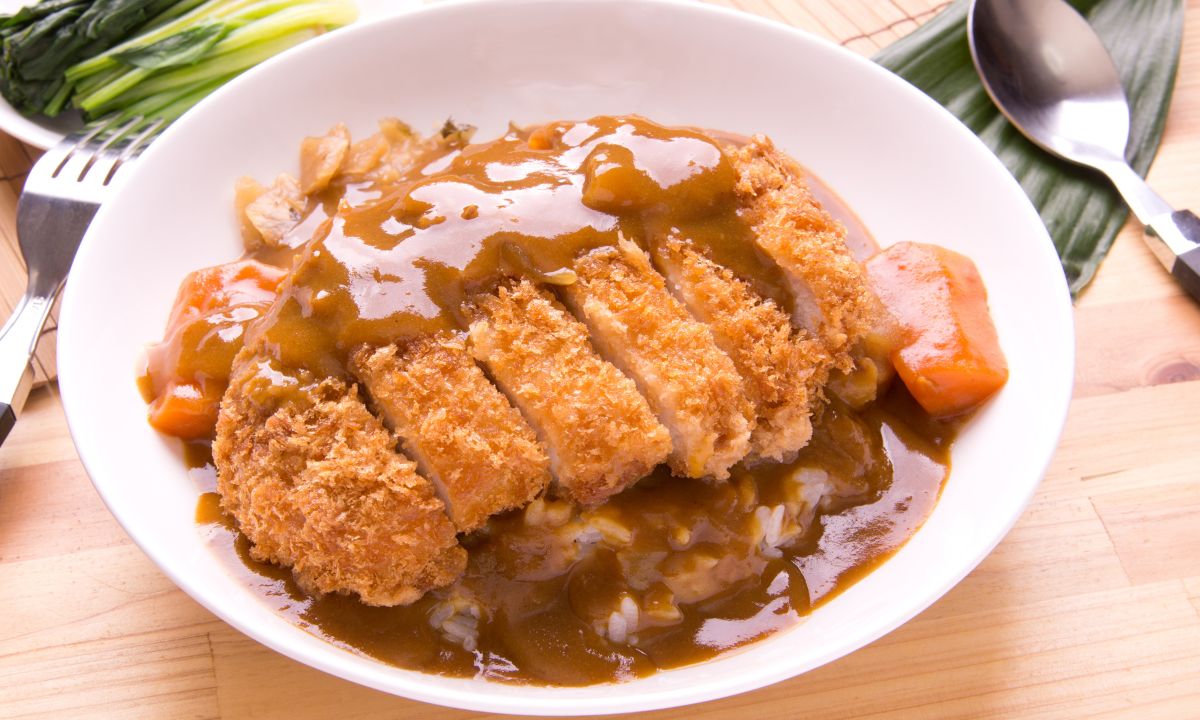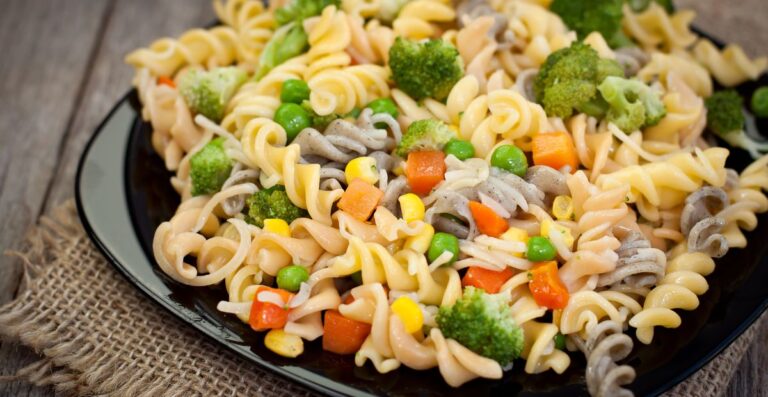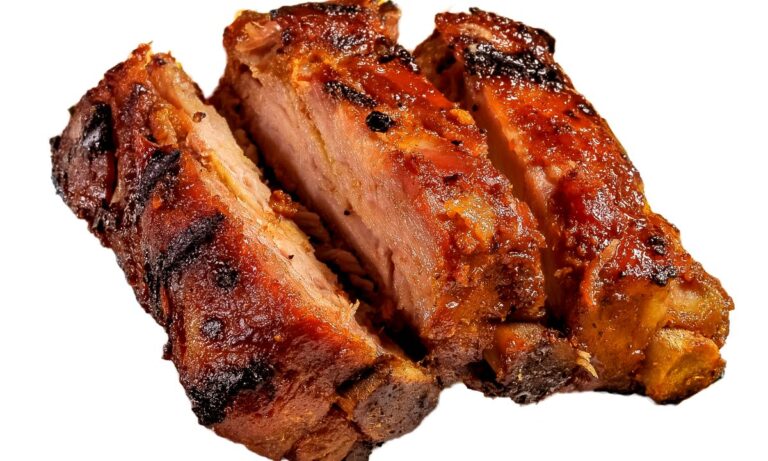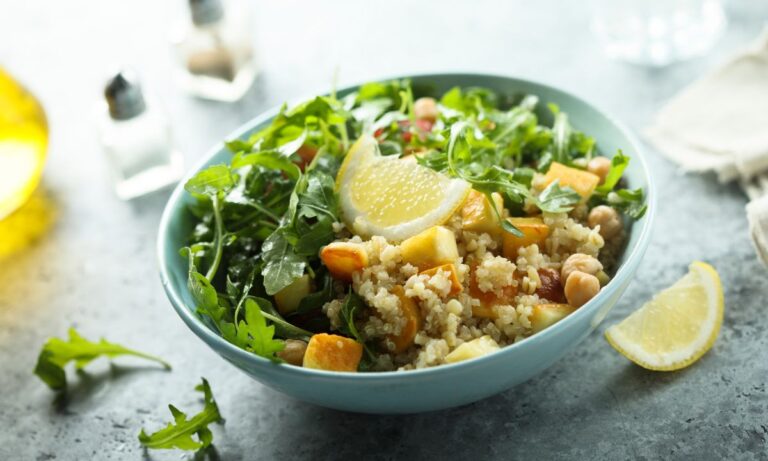Katsu Curry Recipe: A Guide to Making the Perfect Japanese Dish at Home
If you’re a fan of Japanese cuisine, you’ve likely heard of katsu curry – a flavorful and filling dish that’s popular both in Japan and around the world. This dish consists of crispy, breaded chicken or pork cutlets served with a rich and savory curry sauce. While it may seem intimidating to recreate this dish at home, with the right ingredients and technique, anyone can make a delicious katsu curry. In this article, we’ll provide a step-by-step guide to making katsu curry from scratch, along with tips for achieving the perfect texture, flavor, and presentation.
Table of Contents
- Introduction
- Ingredients
- Preparing the Chicken or Pork Cutlets
- Breading the Cutlets
- Making the Curry Sauce
- Serving the Katsu Curry
- Tips for Success
- Variations on Katsu Curry
- Conclusion
- FAQs
Ingredients
To make katsu curry at home, you’ll need the following ingredients:
- 2 boneless chicken breasts or pork loin chops
- Salt and pepper
- 1/2 cup all-purpose flour
- 2 eggs, beaten
- 1 cup panko breadcrumbs
- Vegetable oil, for frying
- 2 tablespoons butter
- 2 tablespoons all-purpose flour
- 1 tablespoon curry powder
- 1 tablespoon garam masala
- 2 cups chicken broth
- 1 tablespoon soy sauce
- 1 tablespoon honey
- 1 onion, chopped
- 2 cloves garlic, minced
- Cooked rice, for serving
Preparing the Chicken or Pork Cutlets
- Preheat your oven to 375°F.
- Season the chicken or pork with salt and pepper on both sides.
- Pound the meat to an even thickness of about 1/2 inch.
- Cut each breast or chop in half.
- Lay out a piece of plastic wrap on your countertop.
- Place one piece of chicken or pork on the plastic wrap.
- Cover the meat with another piece of plastic wrap.
- Pound the meat until it’s about 1/4 inch thick.
- Repeat with the remaining chicken or pork pieces.
- Set aside the pounded meat and discard the plastic wrap.
Breading the Cutlets
- Place the flour, beaten eggs, and panko breadcrumbs in three separate shallow bowls.
- Dip each chicken or pork cutlet in the flour, shaking off any excess.
- Dip the cutlet in the beaten eggs, making sure it’s coated evenly.
- Coat the cutlet with the panko breadcrumbs, pressing gently to ensure it adheres to the meat.
- Repeat with the remaining cutlets.
Making the Curry Sauce
- Melt the butter in a large saucepan over medium heat.
- Add the onion and garlic and cook until soft and translucent.
- Add the flour, curry powder, and garam masala and cook for 1-2 minutes, stirring constantly.
- Slowly whisk in the chicken broth, soy sauce, and honey.
- Bring the mixture to a boil, then reduce the heat to low and let it simmer for 10-15 minutes, or until the sauce has thickened.
- Remove the saucepan from the heat and let the sauce cool for a few minutes.
- Use an immersion blender or transfer the sauce to a blender or food processor and blend until smooth.
Serving the Katsu Curry
- Heat the vegetable oil in a large frying pan over medium-high heat.
- Add the breaded chicken or pork cutlets
- Fry the cutlets for 3-4 minutes on each side, or until they’re golden brown and crispy.
- Remove the cutlets from the pan and drain them on a paper towel-lined plate.
- Slice the cutlets into strips or bite-sized pieces.
- Serve the cutlets over a bed of cooked rice, then ladle the curry sauce over the top.
- Garnish with sliced scallions or cilantro, if desired.
Tips for Success
- Be sure to pound the chicken or pork cutlets to an even thickness before breading and frying them. This will ensure that they cook evenly and have a consistent texture.
- Use a meat thermometer to ensure that the chicken or pork is fully cooked before serving. The internal temperature should reach 165°F.
- To make the curry sauce ahead of time, you can store it in an airtight container in the refrigerator for up to 3 days. Reheat it gently on the stove before serving.
- If you don’t have panko breadcrumbs, you can use regular breadcrumbs instead. However, panko breadcrumbs will give the cutlets a lighter, crispier texture.
- For a vegetarian version of katsu curry, you can substitute the chicken or pork with tofu or vegetables such as eggplant or cauliflower.
Variations on Katsu Curry
While the classic katsu curry recipe calls for chicken or pork, there are plenty of ways to switch up the dish and make it your own. Here are a few ideas to try:
- Use shrimp or fish instead of chicken or pork.
- Make a vegetarian version with tofu, eggplant, or cauliflower.
- Add vegetables to the curry sauce, such as carrots, potatoes, or bell peppers.
- Make a spicier version by adding chili flakes or hot sauce to the curry sauce.
- Serve the katsu curry over noodles instead of rice for a different texture.
Conclusion
Katsu curry is a delicious and satisfying dish that’s perfect for a cozy night in or a dinner party with friends. With this recipe, you can make a restaurant-quality version of the dish right in your own kitchen. Whether you stick to the classic chicken or pork cutlets or try a vegetarian or seafood version, this dish is sure to become a favorite in your household.
FAQs
Can I use bone-in chicken or pork for this recipe?
- While bone-in meat will work, it will take longer to cook and may not cook as evenly as boneless meat.
Can I use a different type of curry powder?
- Feel free to experiment with different types of curry powder to find the flavor you prefer.
Can I make this recipe gluten-free?
- To make this recipe gluten-free, use gluten-free flour and breadcrumbs.
Can I freeze leftover curry sauce?
- Yes, you can freeze leftover curry sauce in an airtight container for up to 3 months.
Can I use a different type of meat for this recipe?
- Yes, you can use beef, shrimp, or fish instead of chicken or pork. Adjust the cooking time accordingly.







